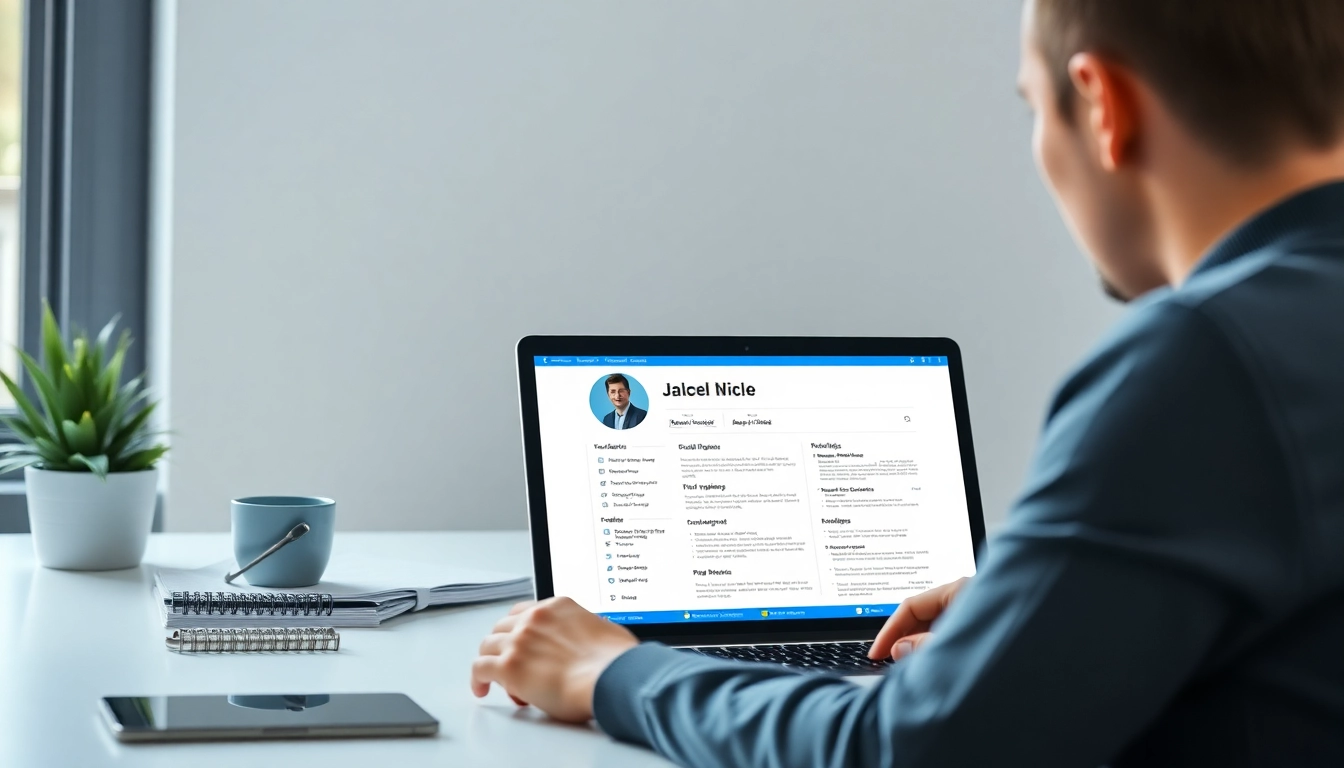Harnessing Professional Resume Templates in 2025: Your Pathway to Career Success
In today’s fiercely competitive job market, simply possessing the right skills and experience isn’t enough—your presentation matters immensely. Essential to this presentation is a well-crafted resume, which functions as your personal marketing document aimed at impressing hiring managers within seconds. The exponential growth of digital platforms and Applicant Tracking Systems (ATS) has catalyzed the importance of professional professional resume templates designed to align with industry standards and cutting-edge trends in 2025. These templates aren’t just about aesthetic appeal; they are strategic tools to elevate your visibility, optimize keyword relevance, and streamline your application process.
The Role of Resume Templates in Career Advancement
Resume templates serve as foundational frameworks that help job seekers systematically organize their credentials. They provide structure, promote consistency, and ensure that critical information—such as skills, achievements, and experience—is presented in a compelling manner. Customizable templates allow individuals to tailor their resumes to specific job roles, industry requirements, and personal branding strategies. In 2025, the integration of ATS-friendly features within these templates has become non-negotiable, ensuring your resume can pass automated screenings and reach human recruiters effectively.
Strategic Benefits of Using Professionally Designed Templates
- Time Efficiency: Templates accelerate the resume creation process by offering pre-designed layouts that seamlessly incorporate all necessary sections.
- Industry Relevance: Tailored templates help you highlight sector-specific skills, certifications, and accomplishments, making your application stand out.
- Enhanced Readability: Clear formatting ensures the recruiter’s eye flows logically through your info, increasing the chance of a callback.
- Legal and Professional Compliance: Templates adhere to current HR standards, preventing unintentional omissions or errors.
Why 2025 Demands Trendy and ATS-Friendly Designs
The digital transformation of recruitment processes has revolutionized how resumes are evaluated. According to recent industry insights, over 75% of Fortune 500 companies and national hiring agencies utilize ATS to scan applications for keywords, relevant experience, and qualifications. This shift necessitates resume templates that are not only visually appealing but also optimized for parsing software. Trendy designs that incorporate sleek, modern aesthetics coupled with ATS-compatible formatting significantly bolster your chances of making it past initial filters.
In 2025, consulting current technological advancements, such as AI-driven keyword optimization and mobile-friendly layouts, is crucial. These aspects ensure your resume remains competitive, easily scannable, and compatible across multiple device types—whether recruiters review your profile on a desktop or smartphone.
Key Features of Effective Resume Templates for Different Industries
- Tech & Engineering: Emphasize technical skills, certifications, and project-based achievements using clean, grid-based layouts that incorporate icons for skills.
- Creative & Design: Use visually dynamic templates with color accents and infographics to highlight creativity and portfolio work.
- Business & Management: Focus on leadership roles, strategic achievements, and measurable impacts, utilizing professional, understated designs.
- Healthcare & Scientific Fields: Incorporate clear sections for licenses, research, and publications, with a focus on compliance and accuracy.
Selecting the Right Professional Resume Template for Your Career Stage
Entry-Level and Recent Graduates: Simplicity Meets Impact
For individuals just beginning their career journey, a minimalist template emphasizing education, internships, volunteering, and soft skills is ideal. A clean, one-page design allows space for highlighting academic achievements and relevant extracurricular activities that demonstrate potential and eagerness to learn.
Mid-Level Professionals: Balancing Experience and Customization
With evolving careers, candidates need templates that present a comprehensive view of their work history without overwhelming the reader. Opt for multi-section templates that organize accomplishments by role, with clear bullet points, quantifiable results, and industry keywords to match job descriptions effectively.
Senior-Level and Specialized Fields: Detailing Accomplishments & Technical Skills
Highly experienced professionals should leverage templates that allow for in-depth project descriptions, certifications, thought leadership, publications, and leadership roles. Such templates often include sections for awards, affiliations, and strategic impacts, portraying a robust professional narrative tailored for executive roles or technical mastery.
Best Practices for Customizing and Optimizing Your Resume Templates
Aligning Templates with Job Descriptions & Keywords
Customization involves tailoring your content to match the specific terminologies and skills listed in job postings. Use keyword analysis tools to identify industry-specific buzzwords and integrate them naturally into your resume. This alignment enhances ATS compatibility and ensures your qualifications are immediately visible to recruiters.
Design Tips for Clarity, Readability, and Professional Appeal
Adopt a font size of 10-12 pt with sufficient spacing. Use bold headings, bullet points, and concise language. Limit color schemes to subtle shades to maintain professionalism. Incorporate white space judiciously to prevent clutter and improve scanning ease.
Tools and Resources for Easy Modification and Personalization
Leverage online resume builders like Canva, Resume.io, and Microsoft’s template repository for quick editing. Many platforms offer AI-assisted content suggestions, ensuring your resume remains optimized and customized for each application.
Common Mistakes to Avoid When Using Resume Templates
Overloading with Excessive Information or Visual Elements
Avoid overcrowding your resume with graphics, fonts, or irrelevant details. Keep the core message clear: your skills, achievements, and experience. Excessive embellishments can hinder ATS parsing and distract recruiters.
Neglecting ATS Compatibility and Keyword Optimization
Design aesthetics should not compromise technical compatibility. Use ATS-friendly formats—standard fonts, plain text, and relevant keywords—to ensure your resume is read accurately by software scanners.
Ignoring Personal Branding and Consistency Across Platforms
Maintain a consistent professional image across your LinkedIn, personal website, and resume. Use matching job titles, summaries, and visual styles to reinforce your personal brand and increase trustworthiness.
Tracking Performance and Updating Your Resume Templates Effectively
Measuring Engagement: Calls, Interviews, Feedback
Use tracking links on online applications or ATS reports to monitor which resumes generate callbacks. Keep a log of feedback received, and adjust content accordingly.
When and How to Refresh Your Resume Templates
Update your template every 6-12 months to include new skills, certifications, or projects. Rearrange sections to prioritize fresh accomplishments and reorganize keywords based on evolving industry language.
Leveraging Analytics and ATS Reports for Continuous Improvement
Many ATS platforms provide insights into keyword matches and scan success. Analyze these metrics to refine your resume localization and tailor content to targeted roles.
